glasses
Latest
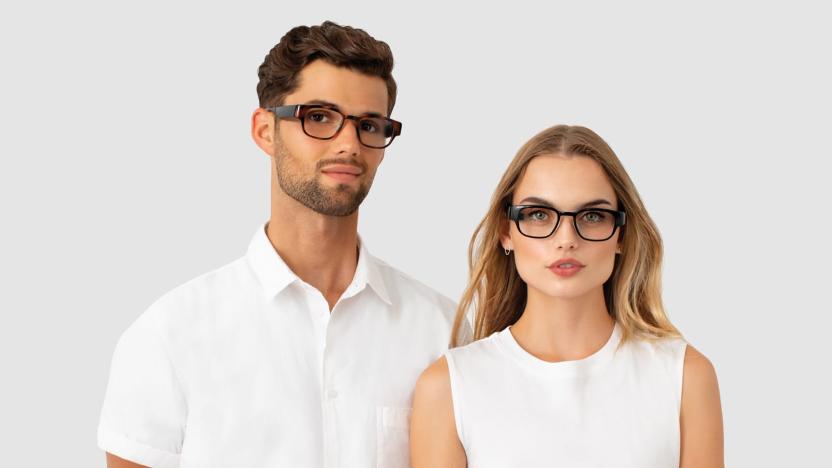
North's smart glasses are now available across the US
One of the greatest obstacles to buying North's smart glasses has simply been to find them. They've only been available at the company's Brooklyn and Toronto flagship stores as well as its pop-ups, which isn't much help to, well, most people. You might have a much easier time shopping from now on. North has released a Focals Showroom app that makes the eyewear available to people across the US and Canada. The app takes you through a depth scanning-based sizing experience that previously required an in-person visit. If you're happy with the design and make a purchase, you'll get your glasses (plus instructions for final tweaks) in several weeks.
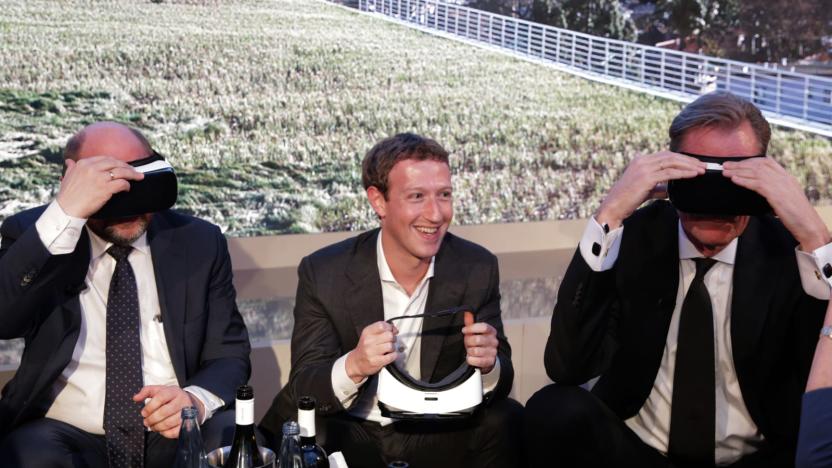
Facebook may be creating AR glasses with Ray-Ban's owner (updated)
Apple might not be the only big tech company working on an augmented reality headset. CNBC sources maintain that Facebook is partnering with Luxottica (owner of Ray-Ban, Oakley and other brands) on AR glasses nicknamed Orion. The eyewear would be a full-fledged phone replacement, according to the contacts. You could take calls, see information and livestream what you're seeing. In that sense, it would be closer to Google Glass (which also involved Luxottica) than phone-dependent devices like Snap's Spectacles.
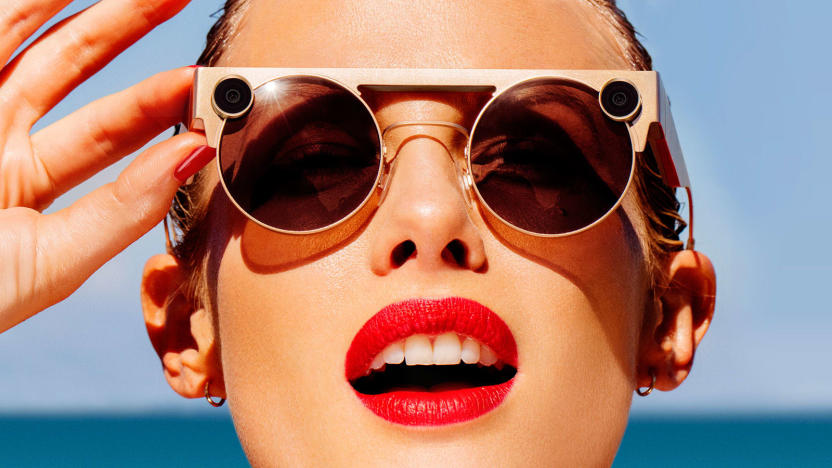
Snap's Spectacles 3 are made for augmented reality
Snap's Spectacles 2 were functionally better, but not a revolution -- and they were still a bit dowdy. Its latest attempt at smart eyewear might fare better, though. The social service has unveiled Spectacles 3 glasses that include dual HD cameras to capture scenes in 3D and introduce augmented reality Snapchat effects to moments where they weren't previously an option. You can add 3D filters to your walk, take pseudo-3D still shots of your friends and add 3D Lens effects to a bike ride. While you can only record video for up to a minute of continuous video at a time, that's still a tangible improvement over the 10 seconds from before.
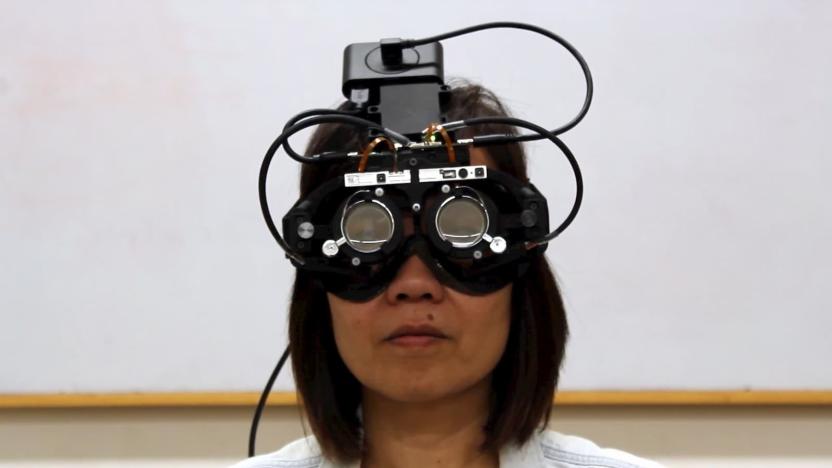
Researchers create eye-tracking glasses that auto-focus where you look
Researchers at Stanford University have created glasses that track your eyes and automatically focus on whatever you're looking at. The so-called autofocals, detailed in a paper published in the journal Science Advances, could prove a better solution than transition lenses or progressive lenses.

Nreal's mixed reality glasses will cost $499 and ship this year
First unveiled at CES 2019, Nreal's Light mixed reality glasses are almost ready for their commercial debut. According to the Chinese startup behind the glasses, they'll cost $499 and a limited quantity will ship to customers sometime this year. They'll enter mass production in 2020, and starting today, developers can place orders for the $1,199 developer kit, which will ship in September. Nreal announced the news at the AWE 2019 conference.
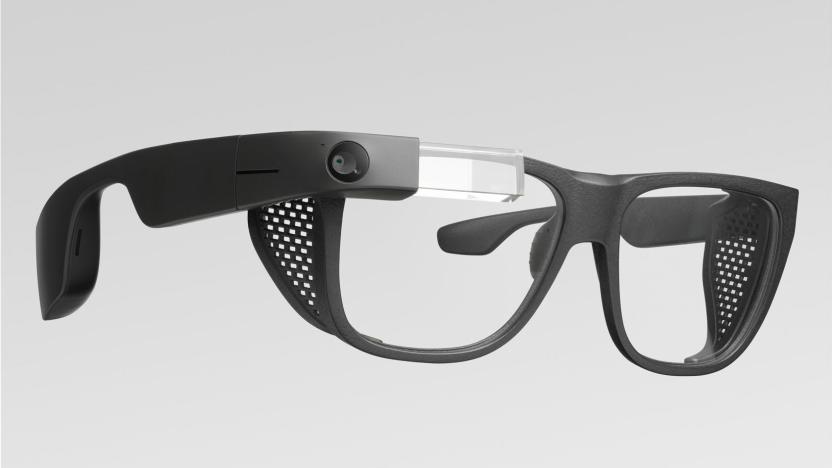
Google's next-gen Glass eyewear lasts longer and runs on Android
The third generation of Google Glass has arrived for tech-savvy workers. Google has introduced Glass Enterprise Edition 2 eyewear that largely sticks to the familiar formula on the outside, but should be far more powerful both in hardware and software. For one, it's "built on Android" -- it should be easier for developers to write Glass-friendly apps, and you can even enroll it in Android's enterprise device management to help IT maintain control. Creators might want to write apps for it, too, since there are some big changes under the hood.

AT&T stores will carry Magic Leap's AR headset starting April 1st
There are a number of challenges you face if you're interested in a Magic Leap One headset, not the least of which is trying it. Are you really going to drop $2,295 sight unseen, even if you're an eager augmented reality developer? You won't have to in the near future, provided you live in the right city. Magic Leap partner AT&T has announced that it will carry the One Creator Edition in a few of its stores, giving you a chance to try the hyped-up wearable yourself. It'll start with the company's flagship Boston store (on Boylston) April 1st, followed by Chicago (on Michigan Avenue) April 3rd and San Francisco (1 Powell) April 6th. Online orders will be available April 5th.
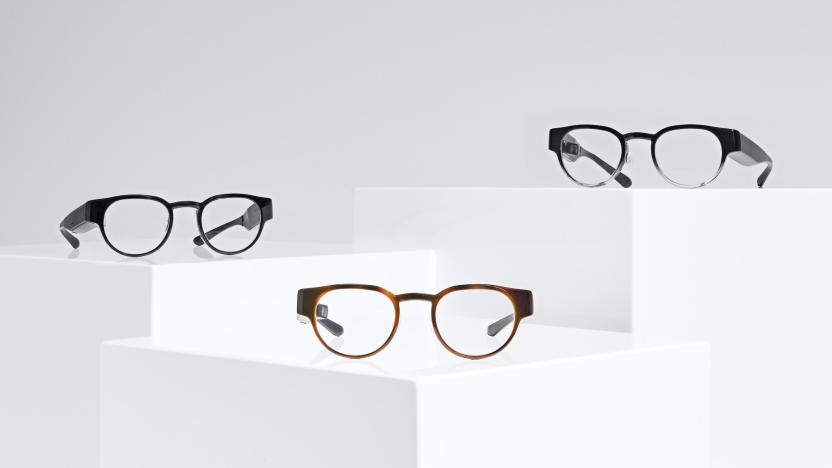
North chops $400 from the price of its Focals smart glasses
The jury is still out on just how useful the recently-released Focals "smart glasses" are, but if you're the kind of person who's wanted to give head-mounted AR a shot, they at least are now a lot cheaper. Focals creator North just announced a big price cut: the glasses now cost $599, down from the $999 the company was originally asking.

Warby Parker's iPhone app lets you try on glasses in AR
Warby Parker has always let you try on glasses before you buy them, either in-store or shipped to your home. Now the eyeglasses brand has a new way to show you how you'll look in your new spectacles: augmented reality. The latest version of the Warby Parker app for iOS includes a new Virtual Try-On feature that shows you exactly how you'll look in any pair of glasses.
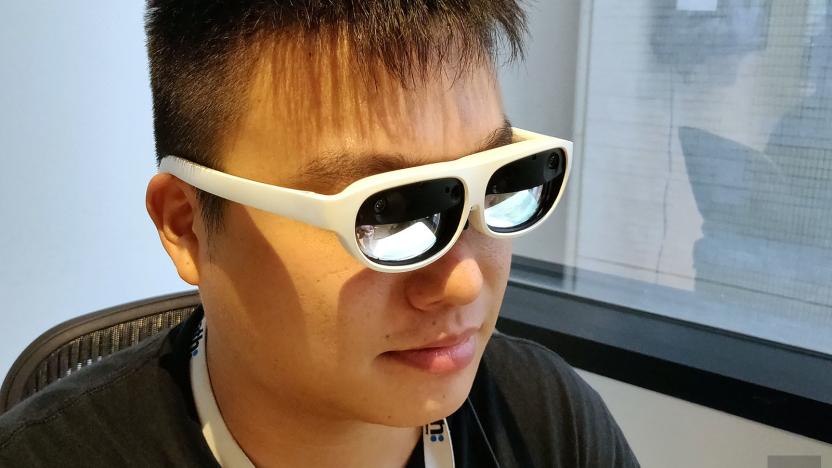
Nreal Light are mixed reality glasses in disguise
While the likes of Microsoft Hololens and Magic Leap One got their moment of fame, both their size and image quality left a lot to be desired, so there wasn't much excitement in the mixed reality market after them. But at CES, a Chinese startup dubbed Nreal brought out something rather interesting: Low-profile mixed reality glasses that look and feel almost like ordinary sunglasses, so you can use them out in the open without getting too much attention. Better yet, the display quality was surprisingly good.
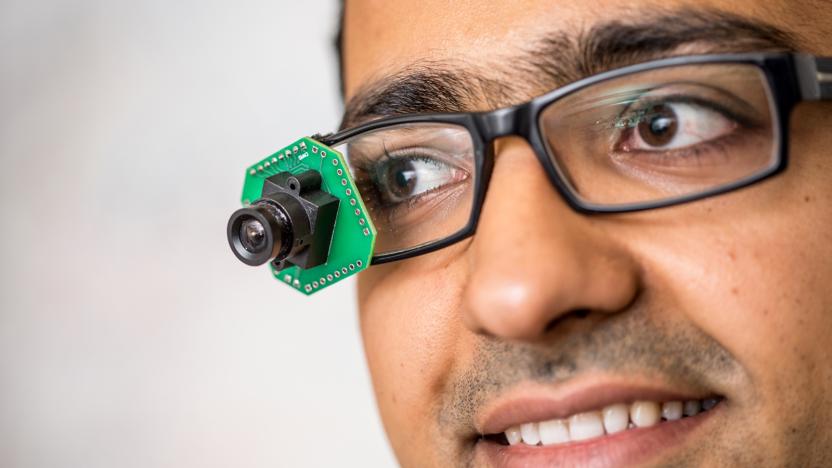
Smart glasses could stream video without killing your battery
There a number of reasons why camera-equipped smart glasses haven't taken off, whether it's dorky designs, bans or just a lack of practical applications beyond niche audiences. However, there's a common theme for them all: they need big batteries to handle all that streaming video, which guarantees a bulky set of spectacles. There might be a solution in the long run, however. University of Washington researchers have crafted a video streaming method that consumes up to 10,000 times less power than traditional methods. The trick, the team said, is to offload most of the hard work to another device using clever wireless transmissions.
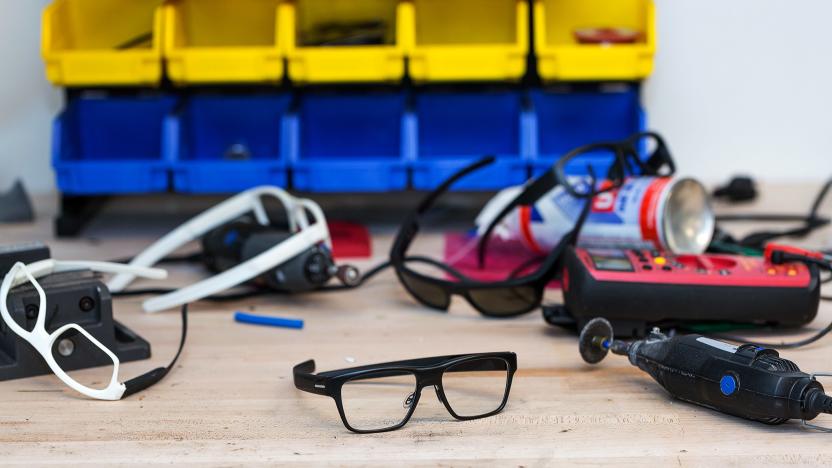
Intel cancels its smart glasses due to lack of investment
When Intel showed off its Vaunt smart glasses (aka "Superlight" internally) back in February, we had high hopes for a new wave of wearable tech that wouldn't turn us into Borgs. Alas, according to The Information's source, word has it that the chip maker is closing the group responsible for wearable devices which, sadly, included the Vaunt. This was later confirmed by Intel in a statement, which hinted at a lack of investment due to "market dynamics." Indeed, Bloomberg had earlier reported that Intel was looking to sell a majority stake in this division, which had about 200 employees and was valued at $350 million.

China’s law enforcement expands use of facial recognition glasses
Police in China are expanding their use of facial recognition glasses. Last month, law enforcement in the country used LLVision Technology's facial recognition glasses to spot criminals evading the law or train and plane passengers using fake IDs among the millions traveling for the lunar new year. Now, Reuters reports, police are using them to check travelers and car registration plates outside of Beijing ahead of Parliament's annual meeting in the city.

Intel unveils smart glasses that you might want to wear
Intel has launched an impressively light, regular-looking set of smart glasses called Vaunt, confirming rumors from Bloomberg and others. Seen by The Verge, they have plastic frames and weigh under 50 grams, a bit more than regular eyeglasses but much less than Google Glass, for example. The electronics are crammed into the stems and control a very low-powered, class one laser that shines a red, monochrome 400 x 150 pixel image into your eye. Critically, the glasses contain no camera, eliminating the "big brother" vibe from Glass and other smart glasses.
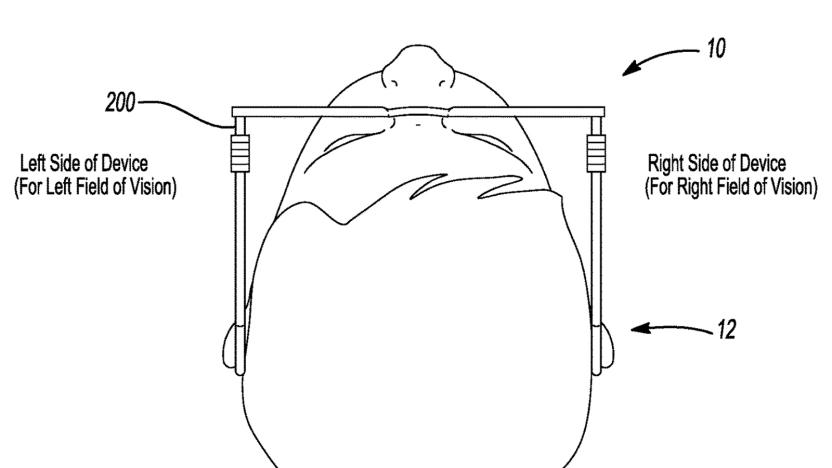
Glasses could prevent motion sickness in self-driving cars
Never mind festooning a self-driving car in lights and other devices to fend off motion sickness -- you might just have to slip on some eyewear. University of Michigan researchers have patented a system that could use glasses or a headset to prevent a disconnect between your sense of motion and what you see. The approach would use a set of sequentially activated light pipes that would imitate the movement of the autonomous vehicle in your peripheral view, giving your body a frame of reference while freeing you to check your phone without getting sick.

Wearable home theater lets you see what's outside
Home theater headsets have come a long way, but there's still a common problem: they tend to dominate your face. It's hard to know when someone wants your attention unless they tap on your shoulder. You might not be quite so cut off in the future, though. Kopin and Pico Interactive have unveiled a wearable home theater prototype, the Eagle, that promises the equivalent of an 80-inch screen while giving you better awareness of the outside world. You probably wouldn't want to walk with this on your head, but it could give you a peek at an approaching person before they say hello.
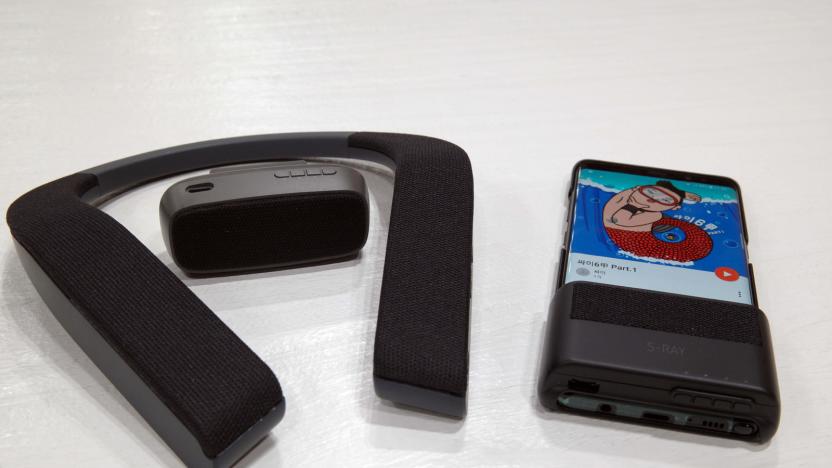
Samsung's latest C-Lab projects include private portable speakers
Samsung is making a tradition out of unveiling C-Lab projects at major trade shows, and CES 2018 is no exception. The tech giant is introducing a trio of experiments, starting with its unique S-Ray speaker (above). The makes directional audio portable -- you can listen to your tunes anywhere you go without the potential discomfort of headphones or subjecting everyone to your musical tastes. Samsung is teasing multiple models, including a smartphone cover and a neck-worn speaker that comes across as a less intrusive version of LG's Tone Studio.
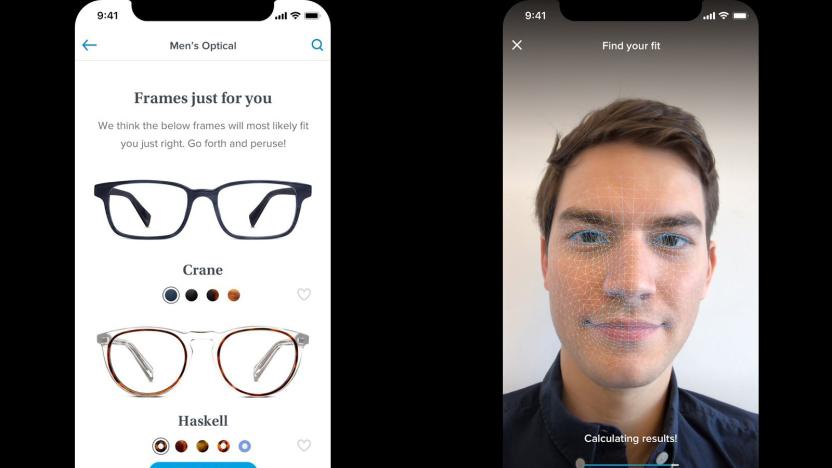
Warby Parker recommends glasses using your iPhone X's depth camera
The depth-sensing front camera on the iPhone X isn't just useful for unlocking your phone or making silly emoji clips. Eyewear maker Warby Parker has updated its Glasses app for iOS to include an iPhone X-only recommendation feature. Let the app scan your face and it'll recommend the frames that are most likely to fit your measurements. This isn't the same as modeling the frames on your face (wouldn't the iPhone X be ideal for that?), but it could save you a lot of hemming and hawing as you wonder which styles are a good match.

Everysight's Raptor AR cycling glasses start at $499
We liked what Everysight accomplished with its Raptor AR Smartglasses -- they present helpful cycling info like directions, cadence and your heart rate in front of you so that you can keep your eyes on the road. If you're feeling the same way, you now know when you can get a pair of your own. Everysight has announced that you can sign up for a pre-order invitation at its website today, with pre-orders starting on November 15th ahead of the February 2018 release. That's a long time to wait (sorry, no AR fall rides for you), but the prices sound about right for projector-equipped eyepieces with their own onboard computing and GPS: you're looking at an "early adopter" price of $499 for glasses with 16GB of storage and $549 for 32GB.
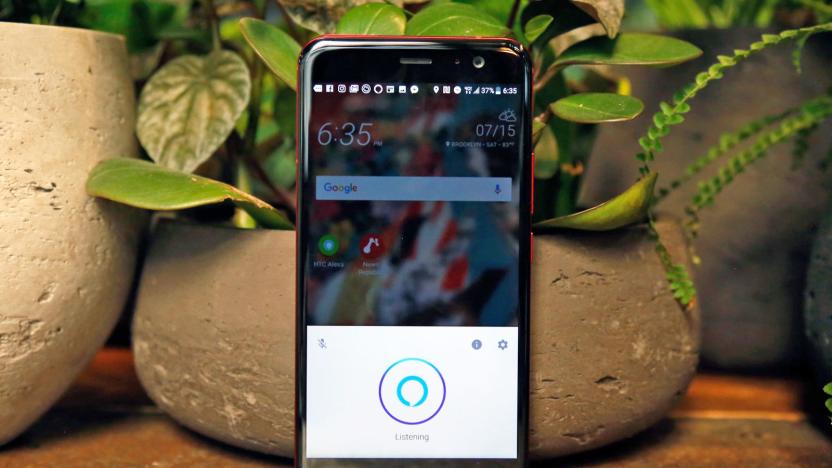
Amazon reportedly working on Alexa-enabled 'smart glasses'
Amazon wants to make Alexa a more formidable competitor to Google Assistant and Siri by letting you put it on your face and take it anywhere, according to a Financial Times report (paywall). The company is said to be developing a pair of normal-looking eyeglasses that tether to your smartphone and allow you hear, and presumably speak to, Alexa via a bone-conduction audio system. There won't, however, be a screen or camera on the model as with Google Glass.







